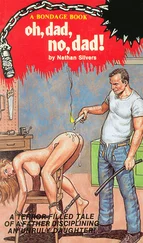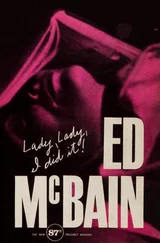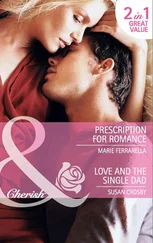He called her the next time he was in the city.
“Hello?” she said.
“Joanna?”
“Yes?”
“Jamie,” he said. “Jamie Croft.”
“Oh. Hi.”
“I said I might call.” He hesitated. “I’m in the city.”
“How are you?” she said.
“Fine, thanks.” He hesitated again. “I thought you might like to have lunch.”
He waited.
“Why don’t you come here instead?” she said.
“Well... sure,” he said.
“It’s on East Sixty-fifth,” she said, and gave him the address.
When she opened the door, she was wearing blue jeans and a man’s shirt, the tails hanging loose. Her hair was pulled into a pony tail; Jamie thought it looked rather too young for her. She was wearing no makeup; she looked a bit wan, he thought.
“Well, hello,” she said.
“Sorry it took so long,” he said. “I had trouble getting a cab.”
“Wednesday,” she said. “Matinee day.”
“Yes,” he said.
“Come in,” she said.
The apartment was a three-story brownstone, the living room on the first floor, the kitchen, dining room and guest room on the second floor, the master bedroom and a library on the third floor. The living room — Jamie had not yet seen the rest of the house — was furnished with antiques she told him she had purchased at a shop in Brewster. He figured they must have cost her a fortune, but she told him at once that the prices there were very good, he should drop in sometime. She asked him if he would like a drink. He said he thought not. They sat opposite each other in easy chairs covered in red plush velvet. It was close to noon. The light was flat.
“No rehearsal today?” he asked.
“No.”
“Do you have a performance tonight?”
“Yes?” There was a slight inflection at the tail end of the single word, as if she still could not believe he was really interested in what she did or when she did it.
“Which opera?”
“Roberto d’Evereux,” she said. “Donizetti.” She looked at him and smiled. “You don’t know it.”
“No.”
“So,” she said. “What are you working on?”
“An architectural thing for the Times Magazine section.”
“New York architecture?”
“Yes. Landmark buildings.”
“Are you enjoying it?”
“I haven’t begun shooting yet. I only got the list yesterday.”
“Of buildings?”
“Yes, the buildings they want me to photograph. Twelve in all.”
“Sounds exhausting,” she said.
“It may turn out to be,” he said, and smiled.
There was a long silence.
“Must be twenty to,” Joanna said.
“What?”
“Or twenty after.”
“I’m sorry, I...”
“Long pause in the conversation.”
“Oh.”
“That’s what they say, isn’t it?”
“I thought it was ten to and ten after.”
“No, twenty to.” She crossed her legs. “You seem nervous,” she said. “Have you changed your mind?”
“About what?”
“About making love to me. That’s why you’re here, isn’t it?”
“I’m not sure why I’m here.”
“That’s why you’re here,” she said. “Shall we go upstairs?”
“If you want to.”
“Yes, I want to.”
“All right then,” he said.
Her third-floor bedroom was entered through a library that served as a sort of cloistered anteroom lined with floor-to-ceiling shelves of leatherbound books. A tiled Franklin stove was set into one wall, under the bookshelves. There were two wingback chairs, each upholstered in red leather, flanking the fireplace. A brass coal scuttle rested on the slate hearth. There were brass andirons, a brass-handled poker, brass-handled fire tongs. An antique bellows, in faded green and red leather, hung just to the left of the fireplace opening.
A metal music stand with an open manuscript on it was standing near the hearth. On the dark, richly stained floor, a flute lay nestled in its open leather case, silvery bright against the green plush lining. The floor was scattered with Oriental rugs: a Bokhara like the one in the Rutledge living room, an Abadeh, and a smaller Isfahan. He could imagine her sitting in this room practicing her flute, or perhaps reading before she went to bed, the coals of a dwindling fire glowing in the grate, a brandy snifter on the inlaid table beside one of the wingback chairs. The door leading to her bedroom was made of heavy oak, with a massive brass doorknob. He followed her into the room.
She undressed without ceremony or artifice, as if she had taken off her clothes for him a hundred times before. Naked, she was more spectacularly beautiful than he imagined she could possibly be; he caught his breath as she came toward him, her long blond hair falling loosely over her shoulders to mantle the sloping tops of her young breasts, so young, the erect pink nipples circled with wider roseate aureoles. Her waist was narrower than it appeared when she was clothed, her hips flaring below it, the triangle of her pubic hair arrowing downward toward her rounded thighs and long legs.
He was still fully dressed when they kissed. Their kiss was long and passionate. When at last she took her mouth from his, she helped him to disrobe, loosening his tie, unbuttoning his shirt, unfastening the belt around his waist, and at last lowering his zipper and pulling him free of his shorts. She held him only for a moment, tightly, her fist clenched around him, and then she released him, and turned from him abruptly, and went to the bed. She lay on her back watching as he undressed, one leg bent, the other extended, propped against the pillows, her hands behind her head, a faint smile on her lips. He put most of his clothing on the seat of a chair, and hung his jacket over the back of it. Then he went to where she was waiting for him.
He discovered during that first afternoon in bed with her that there were several separate and distinct personalities which, like those of schizophrenic Eve in the Joanne Woodward movie, formed in the conglomerate the single person who was Joanna Berkowitz. The first and foremost of these was someone he labeled Joanna La Flute, who could talk tirelessly and with unbridled passion about the instrument she played and its role in the orchestra. She had grown up in a musical family; her father had been only a so-so pianist but a marvelous arranger who had worked for many of the big bands in the thirties and forties before moving on to score several motion pictures; her uncle played the cello, and it was he, she guessed, certainly not her father, who stimulated her first real response to music.
“I fell in love with the cello the first time I heard it,” she told Jamie. “I must have been seven or eight years old. My father took me to hear my Uncle Izzy playing — his name is Israel Berkowitz, he used to play first desk with the Philharmonic, but to me he was Uncle Izzy — and I heard the music he was making, and I simply fell in love with the instrument. It had such a masculine sound, do you know? I mean, I was only eight years old, but Jesus, I felt it right down here, I mean it, so robust, and gutsy, like a man, do you know? If I had to assign a color to the sound a cello makes, I guess it would be Army green.”
But despite her immediate infatuation with the instrument her Uncle Izzy played, her mother decided that Joanna should begin taking piano lessons, which she did indifferently all through her prepubescent years. In 1955, when the motion picture Blackboard Jungle exploded onto the screen with an under-the-titles background rendition of “Rock Around the Clock” by Bill Haley and the Comets, Joanna (like millions of other eleven-year-old girls) discovered rock-and-roll and immediately began fooling around with the guitar.
Читать дальше












